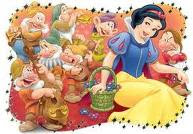Atau kalo teman-teman dapat kabar yang sama sekali ngga disangka-sangka, ekspresi apa juga yang bakal teman-teman tunjukin buat ngeresponnya???
Nhaa...untuk menjawab pertanyaan di atas, simaklah uraian berikut ini !!!
Expression surprise is expression which someone when get a surprise.
Surprise can have valence. It can be neutral expression, pleasant or accordingly some would not categories surprise in itself as an emotion or every human.
Expressing surprise
• Here are some other expressions to show surprise.
Telling surprising news
Guess what!
Surprise!
I’ve got news, for you
Do you know what?
You won’t believe it!


























NOUN PHRASE